- Home
- Enterprise
- Mobile
- The incredible rise of Box CEO Aaron Levie, who stared down the naysayers to prove them wrong
The incredible rise of Box CEO Aaron Levie, who stared down the naysayers to prove them wrong
Aaron Levie was born in Seattle, which means he grew up surrounded by Microsoft. When asked if he ever want to work there, he answered: "No."

Aaron Levie was obsessed with running an internet company from an early age. He launched about 15 companies as a teenager, including one called Zizap, which Levie jokingly described as "the fastest search engine on the Internet – minus Google."

He founded Box.net with his friend from middle school Dylan Smith.

Box was founded in a garage with his friends. In addition to Dylan Smith, he started the company with his buddy Jeff Queisser, who lived four houses down, and high school pal Sam Ghods.
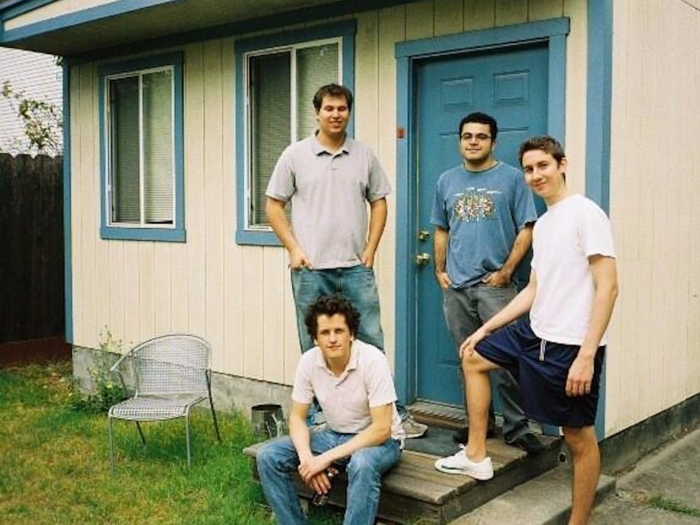
He was just 20 years old when he founded Box. He dropped out of college to run the company, but he doesn't recommend that others drop out. "College is critically important."

(By the way: In 2010, co-founder Dylan Smith, age 24, appeared on an episode of Bravo's "Millionaire Matchmaker" reality show, where matchmaker Patti Stanger called him one of the nerdiest guy she's ever met and made him take dancing lessons.)

The original angel investment was $80,000.

https://twitter.com/mims/statuses/585960227733770240
10 years ago, these were the "benefits" of investing in Box's $80,000 angel round. Some of these are obsolete. pic.twitter.com/h97ZS2Siyq
Levie landed billionaire Mark Cuban as an angel investor by sending him a cold email and asking him to invest. "He wrote us a check without ever meeting us," Levie said. He invested $350,000.
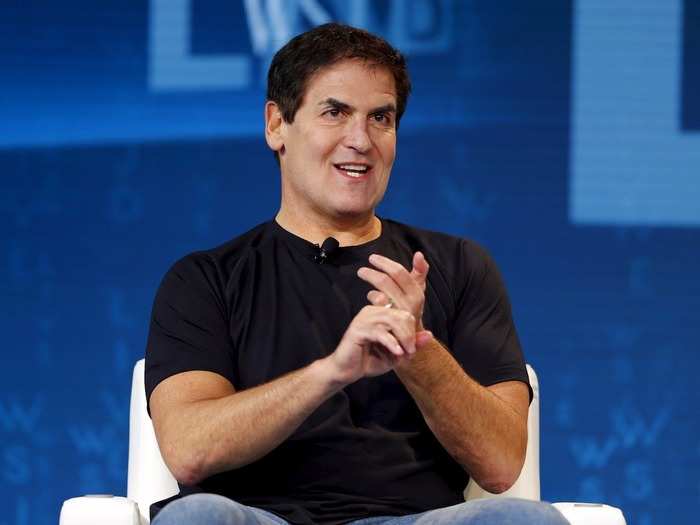
For the longest time, Levie was known as that young, 20-something CEO. By 2011, he had raised over $158 million from venture investors. Then he had a growing-up moment when Citrix offered $600 million to buy Box. Levie turned the offer down, facing down his board full of investors who wanted to make their money back with that sale.

It turned out to be a good call. Today Box is a public company with a market cap of about $1.5 billion.

Levie always wanted to run a big public company but Box's initial attempt to go public was a disaster. Its IPO documents revealed that Box was burning through huge amounts of money to acquire customers. People were shocked at how the well-funded Valley startup was handling its cash.

Mark Cuban, who was bought out a year after his initial investment, slammed the company at the time, saying he'd "combust" if he were responsible for the company's balance sheet.

Box delayed its IPO several times, and Levie answered endless questions about it and the sustainability of his company. In early 2015 he finally took Box pubic and stock popped big on Day 1, making Levie's share worth over $94 million. He was 29.
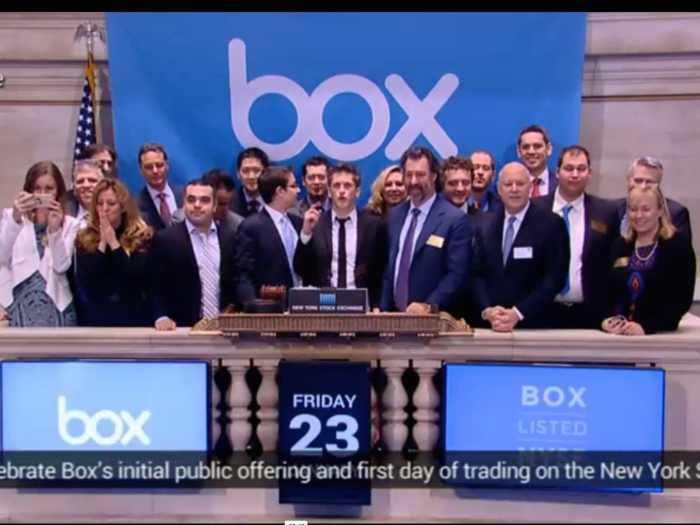
Box shares haven't fared that well since, down about 48% from that first day pop, and below its initial IPO price of $14 per share.
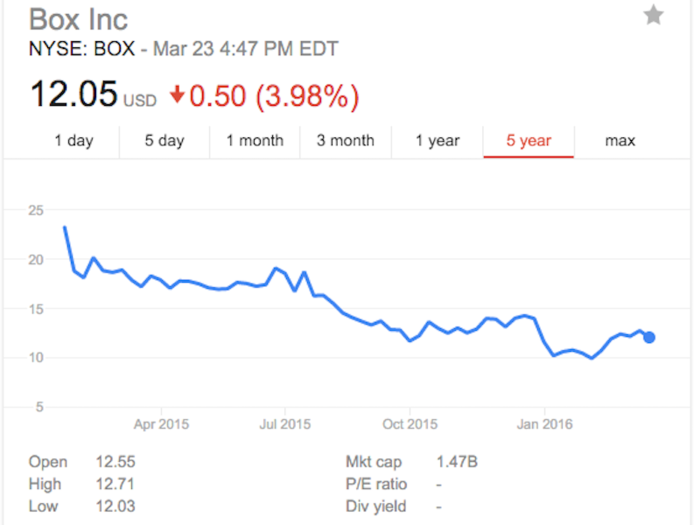
Source: Nasdaq stock research
However, Box just passed $300 million in revenue in 2015, and most analysts are bullish on the stock, which is sweet vindication for Levie.
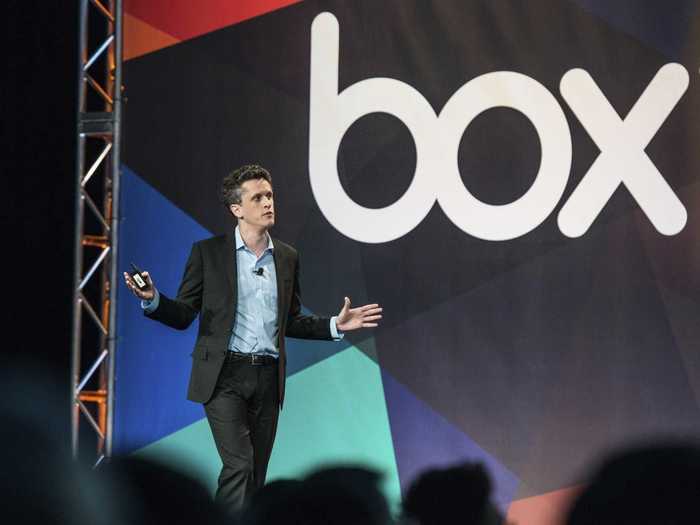
Aaron Levie is paying it forward with his success. He's a huge angel investor who has backed some 26 startups including Stripe, Gusto, and Instacart.

Beyond the drama of the IPO, Aaron Levie is known in the Valley for a lot reasons. He wears colorful sneakers.

Sometimes he wears snazzy socks, too.
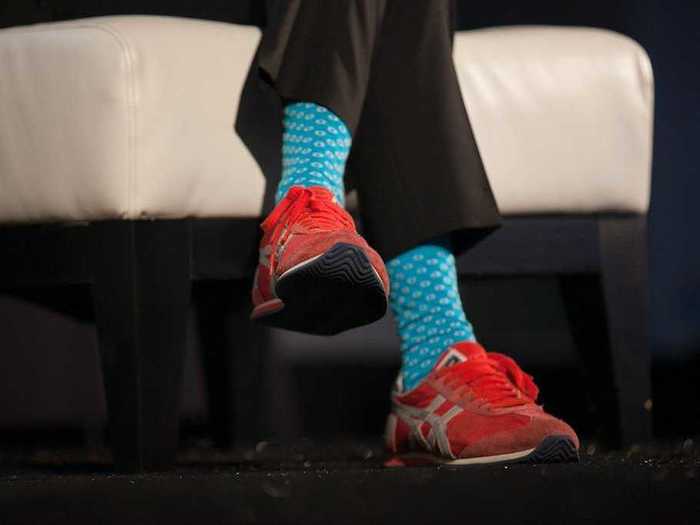
Levie is also a magician. Here's a video where he performs some card tricks.

http://www.youtube.com/embed/MCGMiN0XqbY?rel=0
Width: 800px
Height: 450px
And he's hilarious, constantly cracking jokes. He once posted an April's Fool joke (and subtle dig at competitor Dropbox) in which announced he was merging with payments processor Square to form a new company called "Polyhedron."

Because he's so funny, he's absolutely awesome on Twitter, with a running commentary on the Valley, the software industry, and even politics.

If you're on Twitter, follow him at @levie.
Popular Right Now
Popular Keywords
Advertisement